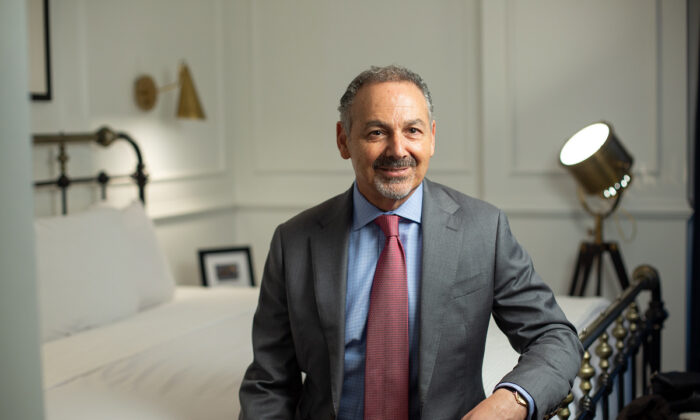Efrem Harkham’s story was written across the globe, from Baghdad to Beverly Hills—by way of Sydney—from chaotic refugee camp to luxury hotels. It’s a story of rags to riches that shows the American dream is alive and well. But it’s not a tale of naked, hard-nosed ambition. Though hardship has punctuated his journey, it’s also been marked by kindness—given and received—along the way.
Harkham, the founder and CEO of Luxe Hotels and Luxe Collection (formerly L.E. Hotels), has hospitality in his blood. His mother ran a warm, welcoming home in Iraq, fragrant with the aromas of wonderful delicacies.
But peace in his native Iraq would be breached by Hitler’s propaganda. In 1942, Jewish homes, businesses, and synagogues were burned. After Israel declared its independence in 1948 and subsequently pushed back against attacks from neighboring countries, life became worse for Jews in Iraq; their businesses were taken over by the Iraqi government, and their rights were stripped away.
Harkham’s family was among the last group of Jews to leave Iraq in 1951. They could only take five pounds of personal possessions with them, including clothes and photos.
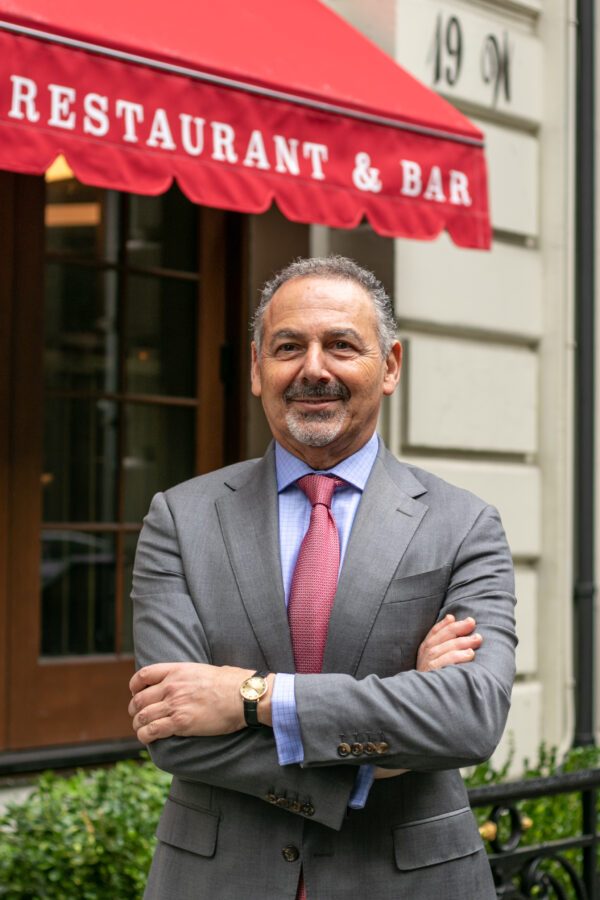
Efrem Harkham is the chairman and CEO of Luxe Hotels and Luxe Collection Hotels. (Chung I Ho/The Epoch Times)
From Iraq to Israel
Israel was to be their new home. All of the new arrivals were sprayed with DDT, and, along with 100,000 others, Harkham and his family were redirected to old British military camps, where tents and sheet-metal huts awaited them. It was muddy and chaotic; disease flourished.
About 700,000 Jews had arrived in Israel in the last five years, an influx that caused a food shortage. The future of the country, beset by economic woes, was uncertain.
The Harkham family would live in the camp for the next four years.
But though most of their material possessions were left behind, what they had left—faith and hope—would be the foundation for building their future.
“My parents believed that we are on earth for a reason, and that in our journey through life, God is always with us,” Harkham wrote in his new book, “Living the Luxe Life: The Secrets of Building a Successful Hotel Empire.”
They knew that not only did something better await them, but also they could make their surroundings better, little by little, for themselves and for others.
The Chicken and the Goat
Harkham’s parents were preoccupied in different ways.
His mother was in charge of feeding the family; she was given ration coupons for eggs, milk, and bread. But with the bit of money she had, she got two chickens, which meant that they could now have eggs. And then a few months later, she was able to get a goat, which meant goat milk to feed not only the family, but also friends and family nearby.
“Due to my parents’ examples during these years, I learned that when things are at their worst, you should try to make things better around you,” Harkham said.
His father was concerned with improving education for kids in the camp, and by and by was able to get funding to build a school for more than 400 children. Somehow, even though there was a food shortage, he managed to get the kids a daily lunch—a bread roll and a small bottle of milk. For the kids, it would stave off hunger during the school day.
Perhaps everyone experiences a first moment of newfound maturity. For Harkham, it was while accompanying his mother to the market when he was 5; she was acutely stressed, as she needed to return to tend to the baby. Harkham had come along to help carry bags. He was hit by a great sense of responsibility toward her, as well as a sense of pure, selfless love.
He intensely felt the difficulties his parents were going through and wanted to spare them as much worry as possible. For example, he would wear out his shoes, getting holes in them—and never let his parents know.
It might have been easy for the family to fall into despair, given their sudden descent into poverty and difficult circumstances. But they relied on their faith, and Harkham took a lesson from their adversity: “As Jews, we are constantly taught the reason God tests us with adversity is because God wants us to develop to our fullest potential. …We must remember that our abilities are greater than we imagine.”
Over the years, the family has remained tight knit.
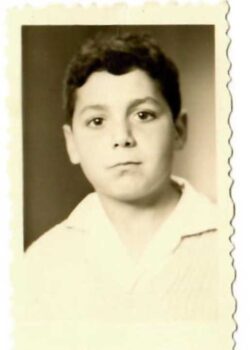
Efrem Harkham as a young boy. (Courtesy of Efrem Harkham)
Passage to Australia
Meanwhile, his father was focused on getting the family out of Israel, and the trajectory of their lives shifted when the opportunity to move to Australia came up.
On their way Down Under, they had a layover in Hong Kong, where Harkham and his siblings saw their first hotels and ate in their first restaurant. “It was better than Disneyland,” he recalled.
In high school, Harkham was bullied a great deal. He told his family that the black-and-blue eyes he received over the years were the result of sports-related injuries. But things came to a head one day, when Harkham found his voice and fought back. He was cast as the perpetrator by the adults, but his bullies never bothered him again after that.
Harkham blossomed after school, joining his brother’s company as a traveling salesman (he was also studying law at the time), and then partnering with him. It was the beginning of many years of hard work and success in the apparel industry, both in Australia and, later, in the United States.
At age 21, now a millionaire, he moved to Los Angeles.
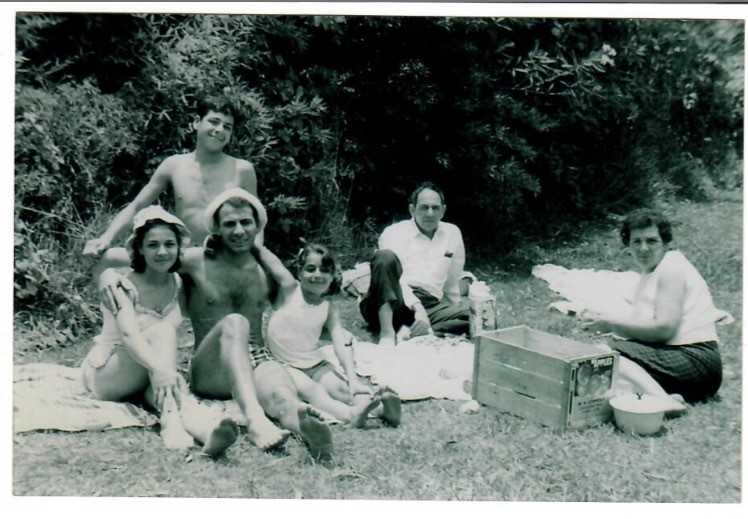
Family picnic in Centennial Park, Sydney, 1969, with (L–R) siblings Rebecca, David, Terry, Sophie, his father Nagi, and mother Aziza. (Courtesy of Efrem Harkham)
It All Boils Down to Showing Up
Harkham says that much of his success can be attributed to one simple thing: showing up.
One day, he was invited to a luncheon to honor a friend, a local councilman. He wasn’t particularly in the mood to go, but he knew that “magical things happen when you show up.”
Seated next to a banker, he struck up a conversation. The banker asked him if he’d be interested in buying a discounted note for a hotel on Rodeo Drive in Beverly Hills. He was in escrow 30 days later.
This is how after 14 years in the apparel industry, he transitioned to the hospitality industry, starting with owning the only hotel on the famous Rodeo Drive.
While running his hotel, Harkham—like all good businessmen—saw a void in the industry: a lack of consistency and targeted marketing, for example. He created a global hotel representation group, which would give managers and owners of individually owned hotels the tools to improve profits, whether through marketing, sales, or training. Part of what the Luxe Collection does is connect hotel members to corporate clients or travel consortiums. In effect, the company becomes part of an extended team, helping the hotels achieve what would be difficult for an independently owned hotel to do on its own.
Harkham became known not just for showing up, but also for forging those connections—among his contacts, his staff, and his community.
It was something that President Ronald Reagan would remark on one day.
Harkham had met Reagan on a few occasions and, at his office in California, was struck by an engraved quote on the former president’s desk that said, “There is no limit to what a man can do or where he can go if he does not mind who gets the credit.”
It was none other than Reagan—the man who called for Gorbachev to “tear down this wall” and who didn’t care who would get the credit for it—who reinforced in him the idea to surround oneself with the best people possible and to set aside one’s ego.
This month, Harkham opened the Luxe Life Hotel New York, in what used to be the headquarters of Time Life magazine. There, the artists and writers of Life had lived above their shared offices; they included Charles Dana Gibson, Norman Rockwell, and Robert Capa. The architects were John M. Carrere and Thomas Hastings, who also went on to build the New York Public Library.
Perched above the doorway is a gilded statue of an angel by sculptor Philip Martiny. This “Life Angel” would be featured in the magazine, its hand over a globe of the Earth.
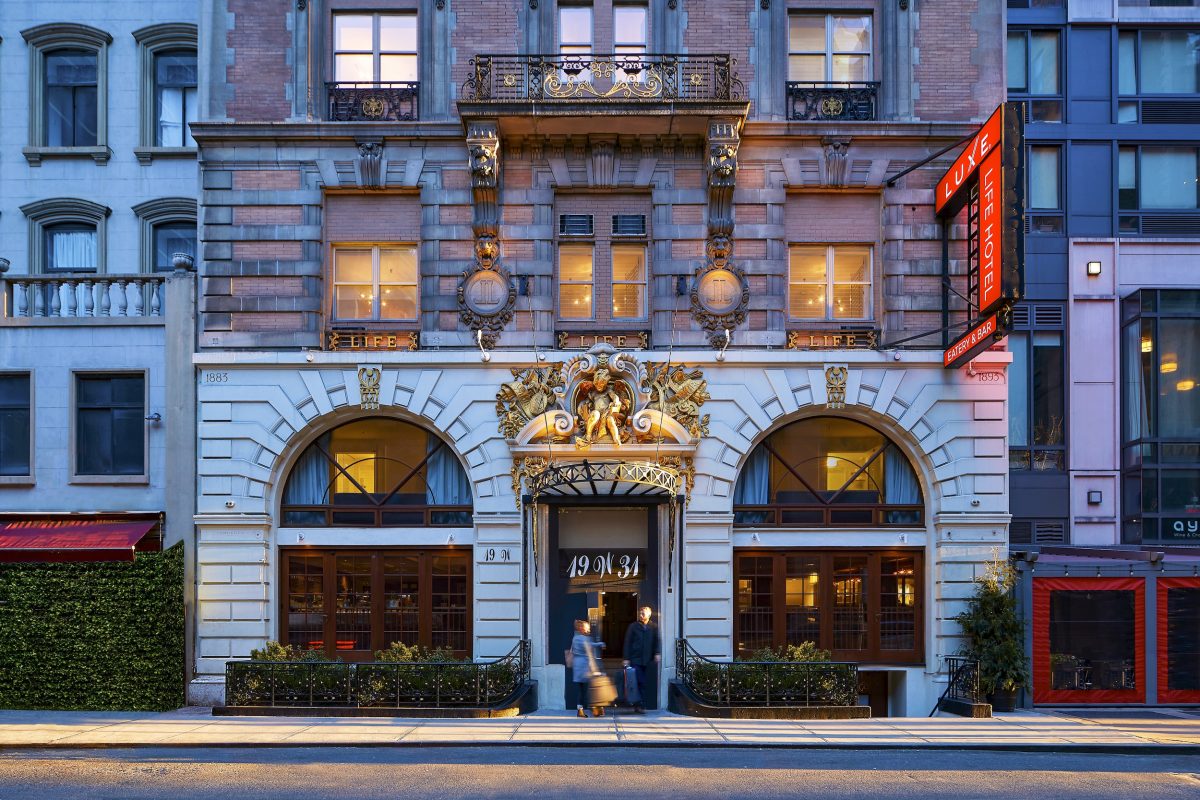
The newest Luxe Hotels addition, Luxe Life Hotel in NoMad, Manhattan. (COURTESY OF LUXE HOTELS)
A Family Legacy
For all of his success in business, Harkham also has been focused on giving back through education. It was always a cherished cause of his father, who passed away last year, at age 105. It was no surprise that he was often asked the secret to his longevity; he would explain that you get back what you put in, tenfold.
Seeds continue to be planted: The family’s Hark Angel Foundation builds schools in poor communities around the world, most recently in Burma. There are other schools in Los Angeles, Sydney, and Kenya.
Reaping what you sow goes back to a simple truth that Harkham was taught very young.
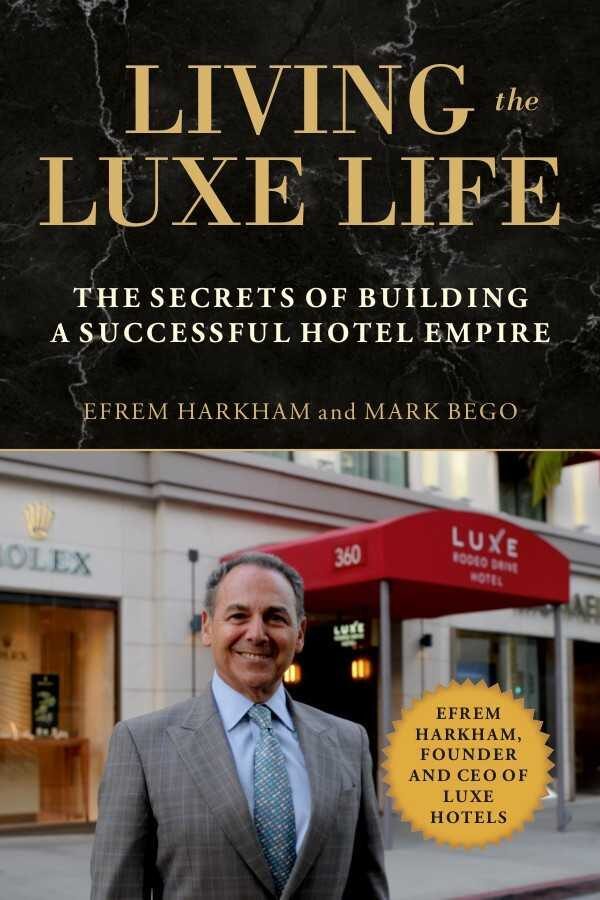
“Living the Luxe Life: The Secrets of Building a Successful Hotel Empire” by Efrem Harkham and Mark Bego
In that refugee camp, half a world away, Harkham and his siblings fervently believed their parents when they told them things would get better.
In his book, Harkham writes: “Remember that if you plant poison, you get poison. If you plant great stuff, innovative thoughts, and positive ideas, it grows as such. Our minds are fertile ground, so whatever you put in is what you get out.”
This article was originally published in The Epoch Times.






































